Scott and Melody Gibson: Vietnam - Lightning in a Bottle
After a brief recent visit, we have concluded today’s Vietnam is much like lightning in a bottle.
Its people are ambitious, industrious, highly educated, largely young and eager to show what they can accomplish in the world. Yet they are confined by a rigid government laced with corruption and unwilling to let loose this dynamic population to energize the country.
We saw Vietnam through the eyes of three English-fluent young people: Quang, 25, a former exchange student whose wedding we had come to celebrate; Huyen, 23, who served as our tour guide; and Mark, 19, Quang’s cousin, just back from college in Australia, whose Vietnamese name we could not pronounce.
Vietnam has come a long way in recent decades. Huyen told us how much things had changed just in her lifetime.
As a child, she recalls severe shortages of food, so that they had to eat “broken rice” to survive. What little rice they had was mixed with cassava and other roots fed only to pigs today.
Pork was the reserve of the rich. And the only milk available for the children was diluted and sweetened condensed milk.
Things began to change dramatically for the better after Vietnam normalized relations with the U.S. in 1995 under President Clinton. The Vietnamese hold him in very high regard, as they do Barack Obama.
The economy began to grow and daily life to improve.
When we went to a restaurant with Huyen and Quang, so much delicious food was brought to the table, and for only $15, that the five of us could not finish it. Meat is now a staple with almost every meal.
What a change from eating pig food just over 20 years ago!
The Vietnamese are nothing if not industrious. And it starts at a very early age.
Elementary school children begin classes at 7 a.m. They aren’t dismissed until 4:30 p.m.
You’d expect them to return home haggard and fatigued, yet we watched as they poured out like happy bees to meet parents waiting outside. The smiles, the laughter, the handholding made for the perfect image of childhood. And when they saw us, it was time to practice English.
“Hello!” they said. “How are you? I am fine!”
Then they all wanted to high-five the American tourists. We experienced instant, if unearned, celebrity.
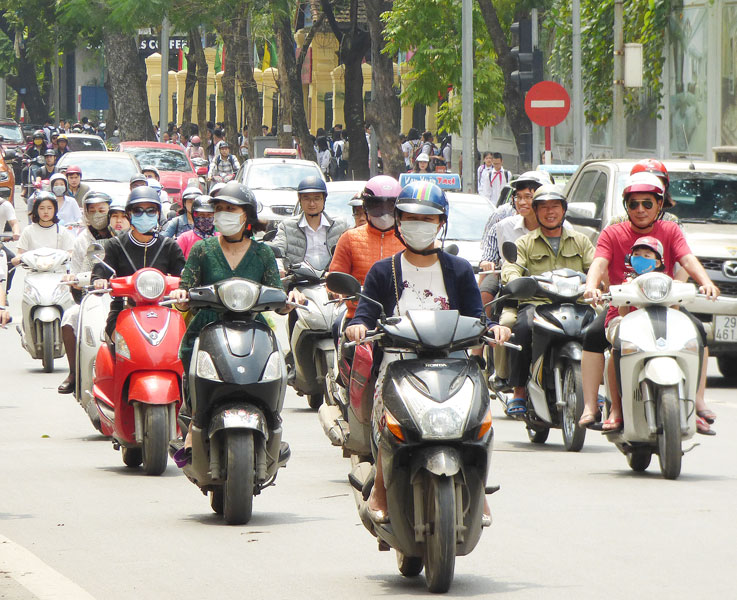
English is compulsory in grade schools throughout the countrty. It is limited only by a deficit in highly trained teachers.
Parents who can afford to often enroll their children in after-school classes taught by native speakers, hoping their children will thus have greater opportunities in a globalized world. Parents encourage education almost to the point of obsession, frequently draining their life savings to give their kids a chance to study abroad for a year or attend a high-quality college.
The Vietnamese know little about free time.
The receptionist at our hotel worked 10 to 12 hours a day, 28 days a month. Yet we could not elicit a complaint from her.
Quang was working 12 to 14 hours a day, six days a week. He was happy because his new job was less demanding than his old one, yet paid better.
Poor women in Hanoi work from sunup to sundown, selling a kaleidoscope of products on the street. Begging is rare.
The bonds of family were evident everywhere. From the father holding his daughter’s absurdly pink backpack while she said good-bye to her school friends, to the kids latched onto mom on the motorbike like panda cubs clinging to mother’s fur, to the elaborate wedding ceremonies that weld together not just bride and groom but their families, the primacy of family in Vietnamese life seems to be one of the country’s greatest strengths.
This impression is supported by statistics. Divorce is a rarity in Vietnam — 4 percent, compared to more than 50 percent in the U.S.
The burden Vietnam faces, the bottle that confines its otherwise enterprising populace, is a self-serving government structured around corruption.
We found the Vietnamese people to be scrupulously honest. But the Communist single-party system puts its hands into the pocket of businesses at every turn.
Quang and some of his friends saw the opportunity for a successful restaurant by recognizing the appetite of Vietnamese youth for Italian food. Who knew? But the multiple licenses and permits required just to start a business gave government officials the opportunity for extortion and delay, eventually killing the project.
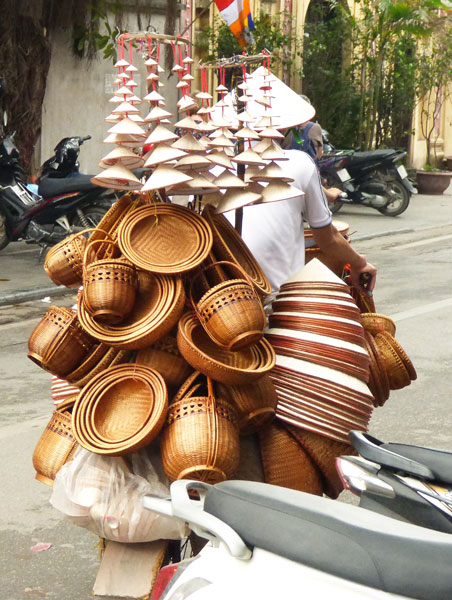
After that experience, Quang joined an organization dedicated to fighting government corruption. They created a You Tube program in which they broadcast complaints of corruption called in by citizens on a hotline.
That is where Quang met his new bride, Lam, a young journalist whose passion is government reform. Unsurprisingly, their venture in fighting corruption was short-lived, as the government took note and shut it down.
Such roadblocks cause many young people to despair of Vietnam and plan moves to countries where freedom, not government privilege, is the norm. Mark, the 19-year-old studying in Australia, is desperate to find some country to welcome him, so he can achieve the potential his skills and work ethic allow.
Looking at Vietnam, we see a country much like South Korea.
The populace has an intense eagerness to achieve a greater potential and better life. But unlike South Korea, which recently impeached its president for engaging in corruption, Vietnam is still shackled by a leadership following the Chinese blueprint of gradual economic liberalization without any accompanying political freedom.
It seems to us that President Obama was on the right track in using strengthened economic ties to encourage political reform. As a result, Vietnam came to recognize the U.S. as an ally against an increasingly assertive China, which it mistrusts.
The U.S. has a surprisingly positive image in Vietnam. We were welcomed everywhere we went, and the people we met almost uniformly admired the United States. So Americans have the chance to become an increasing force for positive change.
We would encourage anyone to travel to Vietnam. The country is beautiful, the people are friendly and the cost of travel is still astonishingly low. Expanding ties between the U.S. and Vietnam, we believe, is one way we can help free the Vietnamese lightning from its bottle.



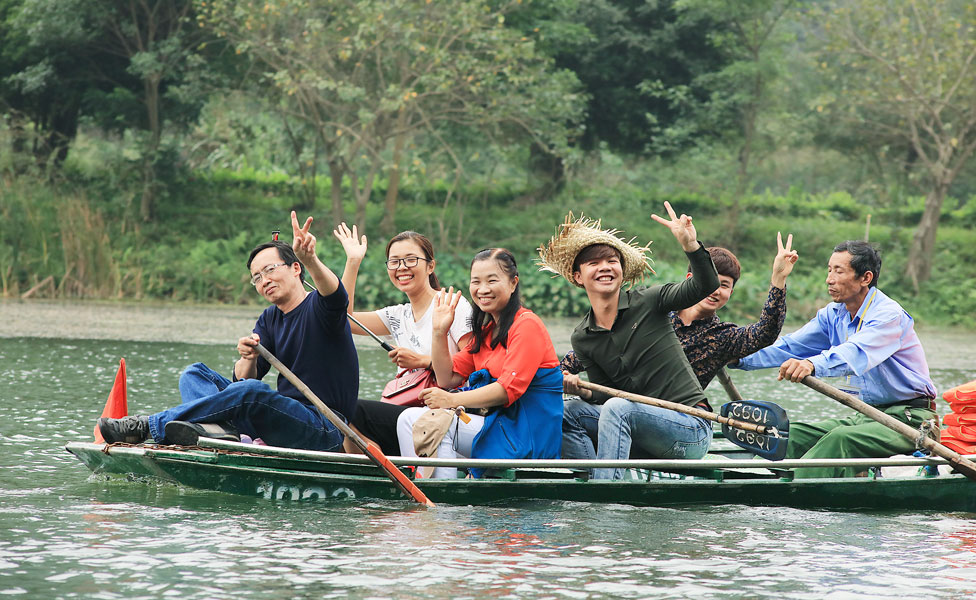

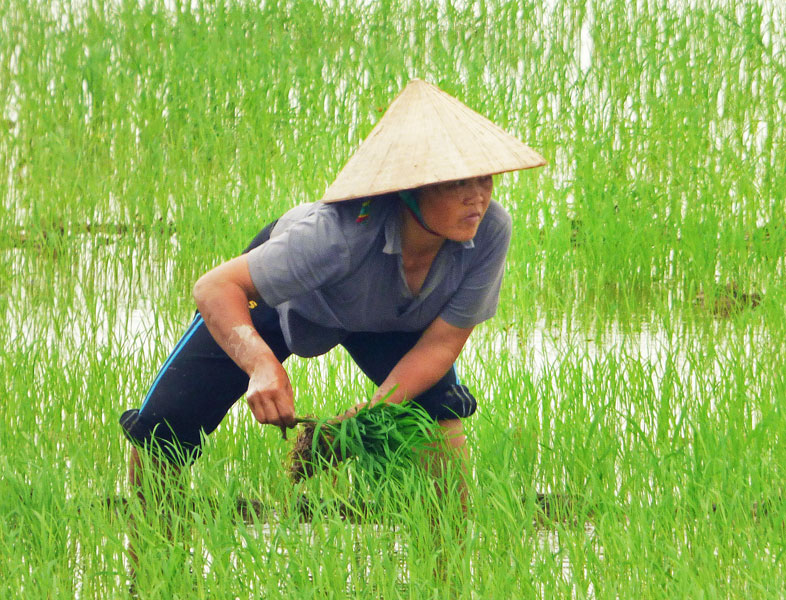



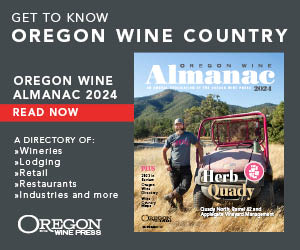



Comments